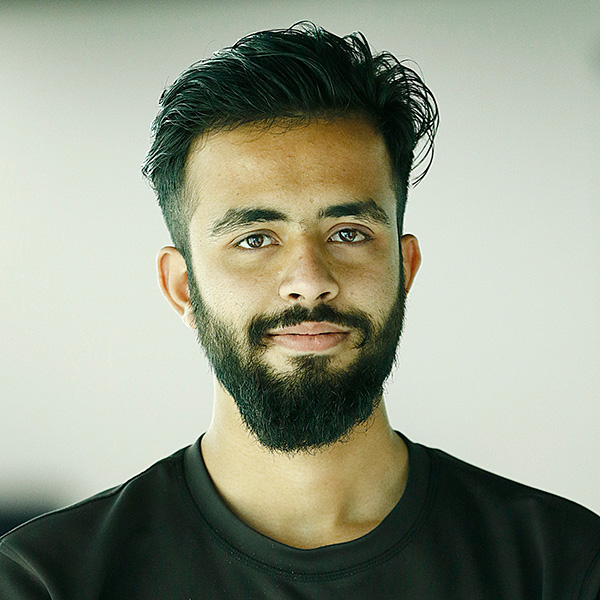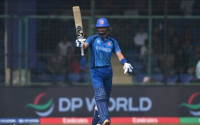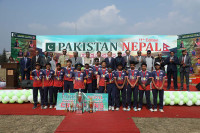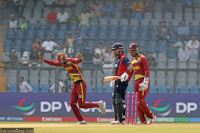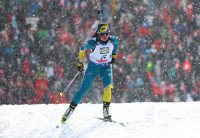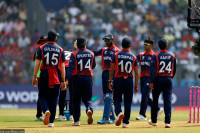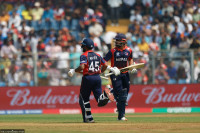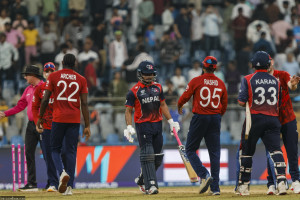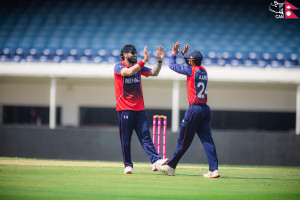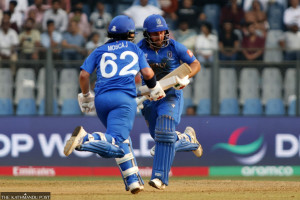Sports
Political meddling has broken Nepali sports. Will ‘New Nepal’ fix it?
Insufficient investment, corruption and neglected infrastructure have forced athletes abroad and sidelined fans at home. Now, under the banner of reform, stakeholders demand that sports be part of the nation’s recovery.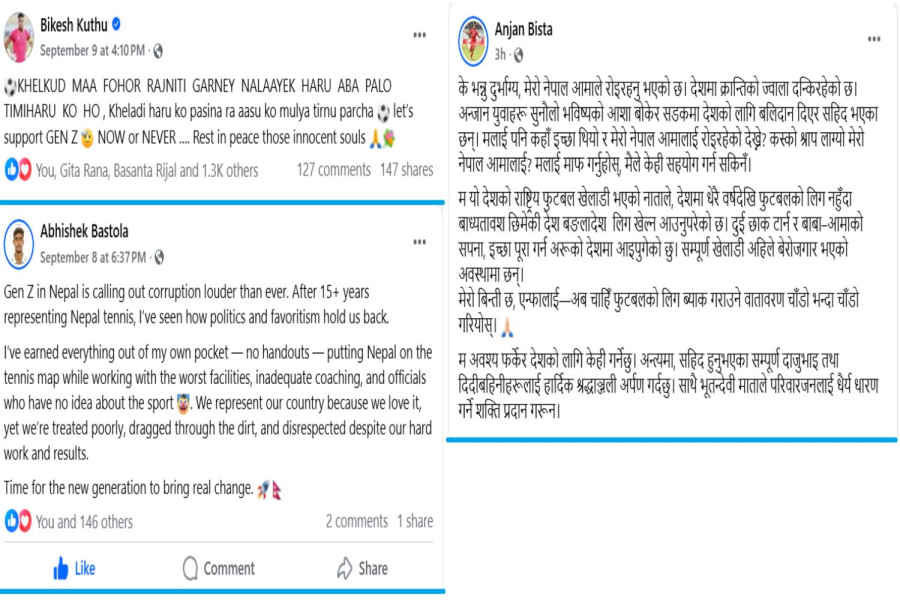
Nayak Paudel
Similar to other state institutions, sports ministries and councils at the central and provincial levels have long been abused as recruitment centres for political loyalists, often led by individuals with no sporting background and those who have never experienced athletes’ struggles firsthand.
Sports entities also see changes in their leadership when the government changes, leading to a lack of continuity in a programme brought by the former one.
Since CPN (Maoist Centre)’s Pushpa Kamal Dahal ‘Prachanda’ was appointed as the first Prime Minister of the Federal Democratic Republic of Nepal in August 2008, and until CPN-UML’s KP Sharma Oli’s resignation on September 9, there had been 13 government changes in 17 years. And with every change in the government, there were alterations in leaderships in sports entities.
For instance, Ramesh Silwal, a close aide to Oli, was appointed as the member-secretary of the National Sports Council (NSL) for a second term, of four years, in July 2020. But a change in the government saw Silwal being sacked in October 2021, and the government appointed Tanka Lal Ghising, a close aide to Prachanda, as the new member-secretary in November 2021.
As the rift between Prachanda and Oli deepened recently, the Oli-led government’s Minister for Youth and Sports Teju Lal Chaudhary and Ghising also had differences. As a result, the ministry did not allow the organisation of the 10th National Games under Ghising’s leadership, showing no concern towards the athletes and their rights.
The 10th edition of the country’s biggest sporting tournament, through which the country’s representatives for international stages in over 30 sports are also decided, was initially slated for November 2024 in Karnali Province. However, it was later rescheduled for April 2025 and then again for May 2025. But the event is still uncertain, all because of the dispute between the minister and the member-secretary.
There have always been voices raised demanding that sports be free from political bargaining. But it has not been heard. Of late, the dispute between the government and the Nepal Olympic Committee has also put Nepal’s participation in the 2026 Asian Games in Japan at risk, all due to the differences in political ideologies and vested interests of the leaders.
Meanwhile, as Nepal pushes to rebuild institutions and reform systems under the banner of ‘New Nepal’, with anti-corruption crusader and former chief justice Sushila Karki leading the interim government, athletes, fans, and sports stakeholders are voicing a common concern: sports must not be left behind.
Expressing condolences to the lives lost in the revolt of September 8 and 9, Bikesh Kuthu, one of Nepal national men’s team goalkeepers, through his Facebook post on September 9, stressed the need for a change in the country’s sports sector.
“Those who have been doing dirty politics in sports, it is now your turn,” Kuthu wrote. “You will have to pay the price for athletes’ sweat and tears.”
Several athletes and sports stakeholders reacted to Kuthu’s post with supportive emojis. Kajal Shrestha, an international taekwondo referee and a former player, commented, “That’s what we want: revolution. Revolution, but not by those who carry the bags of political parties. Such individuals should not be allowed to hold the posts.”
Kuthu represents Nepal in the country’s, as well as the world’s, most-loved sport: football. But the same sport has been struggling due to what fans have been regularly stressing as ‘bad leadership’. People leading the All Nepal Football Association, the country’s governing body of football, are also loyalists of different political parties. Pankaj Bikram Nembang, ANFA’s president, is associated with the Nepali Congress.
Nepali football team’s foreign coaches have always left with a heavy heart. If we look at only since 2021, Kuwaiti Abdullah Al Mutairi and Italian Vincenzo Alberto Annese left Nepal’s men’s football, and Belgian Patrick De Wilde left women’s football after getting fed up with unnecessary politics and interventions from the ANFA.
Two seasons of the A-Division League, the highest division of club football in the country, have been missed by the ANFA. As a result, eight national players—Nepal’s captain Kiran Chemjong, Ananta Tamang, Anjan Bista, Aayush Ghalan, Yogesh Gurung, Sanish Shrestha, Arik Bista and Abhishekh Limbu—have joined different clubs in Bangladesh for their league.
Bista, who is currently the joint highest scorer for the national men’s side, joined Brothers Union to play in the top tier of Bangladeshi football. He also shared an emotional Facebook post on Saturday citing that it was not his desire to leave the country at a time when ‘mother Nepal’ is weeping and youths are being killed. He wrote: “As a national football player, I am compelled to play in the league of a neighbouring country, Bangladesh, because there has been no football league in our own nation for many years. I have come here just to manage two meals a day and to fulfil the dreams and wishes of my parents.”
Likewise, due to the lack of concern by the ANFA, NSC and the government, Nepal’s home of football, Dasharath Stadium, has also been suspended from hosting AFC and FIFA matches, citing unsafe and poor structure. Nepali fans are not able to cheer for the team at the home venue.
“My humble request to ANFA: please, create the environment to bring the football league back as soon as possible. I will surely return and do something for my country,” Bista continued. “Finally, I pay heartfelt tribute to all the brothers and sisters who became martyrs, and I pray to Goddess Bhutandevi to grant strength and patience to their families.”
Nepali sports lovers argue that it is possible to take Nepali sports to greater heights. They often cite the improvement in Nepali cricket after former captain Paras Khadka joined the Cricket Association of Nepal as its secretary. And as the country is currently seeing a change in its system with the corrupt leadership terminated after the dissolution of the parliament and the call for fresh elections, Nepalis expect a revolution in the sports sector too. They believe that with honest leadership and resumed activities, sport can once again unite the nation.
“After 15+ years representing Nepal in tennis, I’ve seen how politics and favouritism hold us back,” Abhishek Bastola, one of Nepal’s most accomplished tennis players, wrote on his Facebook on September 8. “I’ve earned everything out of my own pocket—no handouts—putting Nepal on the tennis map while working with the worst facilities, inadequate coaching, and officials who have no idea about the sport. We represent our country because we love it, yet we’re treated poorly, dragged through the dirt, and disrespected despite our hard work and results.”
Bastola added, “Time for the new generation to bring real change.”




 15.12°C Kathmandu
15.12°C Kathmandu